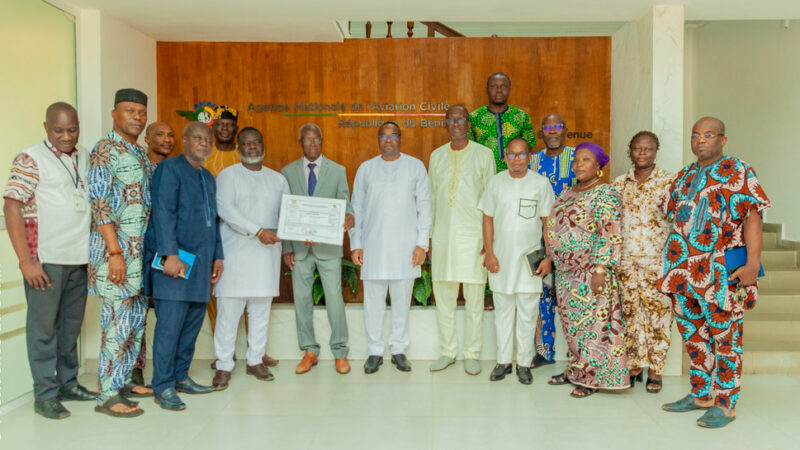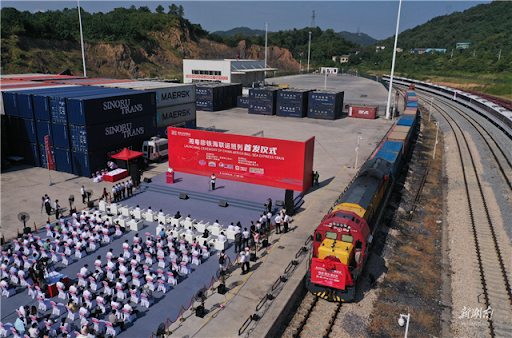REDUCING SUPPLY CHAIN RISKS AND SAVING THE PLANET THROUGH LOCALISATION AND CIRCULAR ECONOMY PRINCIPLES

US-based author and sustainability and circularity specialist Deborah Dull launched her latest book at the 47th annual SAPICS Conference in Cape Town. Dull was one of the inspiring and insightful speakers on the programme at this event, which is Africa’s leading conference for the supply chain profession. This year, more than 700 delegates convened to learn, share knowledge and network.
Entitled “Full Circle: Supply Chains Reimagined: A Story of Circular Supply Chain Capabilities”, Dull’s latest book tells the story of a fictional character, Maya Patel. When a global supply chain crisis paralyses her manufacturing company, Maya proposes a radical solution: to repair and manufacture critical components locally, rather than depending on distant suppliers.
Some of the key messages in Dull’s SAPICS Conference presentation were that one small component – in Maya’s case, a small industrial seal – can bring an entire supply chain to its knees, and that localisation can reduce supply chain risks and help to save the planet by cutting transport and carbon emissions. “Supply chains have become very long and complex,” she stated. She used the example of a fruit cup snack containing diced pears. “A product sold in the United States is Dole Pears. These pears travel 29 000 kilometres to get where they are needed. They are grown in Argentina in South America, packed in Thailand in Asia and then shipped to the USA. A cell phone goes all the way to the moon if we add up all the components. A computer chip crosses 70 borders before being put into where it is used,” she told SAPICS attendees. “As Maya discovers, we are dependent on global supply chains for parts that we could make locally!”
Dull believes that in the future, instead of sending products around the world as they go through global supply chains, we will send product files and orders to regional manufacturing sites. Artificial intelligence will help with repairs, using technology like an augmented reality overlay to guide the human technician. She cited the example of ifixit.com, a platform that offers “repair guides for everything, written by everyone”. The ifixit website states: “We help thousands of people repair their things every day. Every time you fix something, you help the planet.”
Dull discussed the concept of urban mining, where minerals and components are extracted from e-waste. “It’s less expensive to mine e-waste than the planet,” she told SAPICS delegates, and shared the astonishing statistic that there are 10 billion dormant cell phones currently sitting in drawers in homes around the world – that’s more unused mobile phones than people on the planet! Molg Electronics is one company tackling electronic waste through circular manufacturing, Dull noted. Molg is developing robotic systems that can autonomously disassemble a server in just 3.5 minutes, with the goal to remanufacture with recovered components.
Dull urged SAPICS attendees to embrace circular economy principles like sourcing locally, producing locally and investing locally, to address some of today’s supply chain challenges. “Local sourcing might include dissembling and reusing available resources. Local production could mean new builds with reused parts or repairs with reused parts. Job creation, upskilling and resource restoration are among the positive spin-offs of investing locally. We must think differently about how we can eliminate miles and materials, how we can circulate products and components (locally) and how we can regenerate communities and resources,” Dull concluded.
Full Circle is a companion novel to Dull’s recently launched book Circular Supply Chains: How to build the future of sustainable operations, available from publisher Kogan Page.
For more information:
Tel: +27 (0) 10 013 3442
Email: info@sapics.org.za
ABOUT SAPICS: http://www.sapics.org
Since 1966, SAPICS has worked to elevate, educate and empower the community of supply chain professionals in South Africa and across the continent. This is done via membership, events, the annual conference and education courses and workshops through Authorised Education Providers and others.
SAPICS is registered in South Africa as a not-for-profit company. Its mandate is to ensure that any profits made are used towards the continual development and overall benefit of individuals and organisations in the supply chain management profession.
The annual SAPICS Conference is the leading event in Africa for supply chain professionals.





